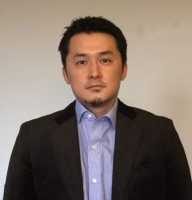28 Oct Dementia Risk Raised When Elderly Lose Home During Disaster
MedicalResearch.com Interview with:
Hiroyuki Hikichi, Ph.D.
Research Fellow
Harvard T.H. Chan School of Public Health
Boston, MA 02215
MedicalResearch.com: What is the background for this study?
Response: Recovery after major disaster poses potential risks of dementia for the elderly population, such as resettlement in unfamiliar surroundings or psychological trauma. However, no previous studies have demonstrated that experiences of disaster are associated with the deterioration of dementia symptomatology, controlling changes of risk factors in a natural experimental setting.
We prospectively examined whether experiences of a disaster were associated with incident dementia in the aftermath of the 2011 Great East Japan Earthquake and Tsunami.
MedicalResearch.com: What are the main findings?
Response: The main findings are that major housing damage and home destroyed were associated with cognitive decline: regression coefficient for levels of dementia symptoms = 0.12, 95% confidence interval (CI): 0.01 to 0.23 and coefficient = 0.29, 95% CI: 0.17 to 0.40, respectively.
MedicalResearch.com: What should readers take away from your report?
Response: The effect size of destroyed home is comparable to the impact of incident stroke (coefficient = 0.24, 95% CI: 0.11 to 0.36).
From these findings, cognitive decline should be added to the list of health risks of older survivors in the aftermath of disasters.
MedicalResearch.com: Thank you for your contribution to the MedicalResearch.com community.
Citation:
Hiroyuki Hikichi, Jun Aida, Katsunori Kondo, Toru Tsuboya, Yusuke Matsuyama, S. V. Subramanian, Ichiro Kawachi. Increased risk of dementia in the aftermath of the 2011 Great East Japan Earthquake and Tsunami. Proceedings of the National Academy of Sciences, 2016; 201607793 DOI: 10.1073/pnas.1607793113
Note: Content is Not intended as medical advice. Please consult your health care provider regarding your specific medical condition and questions.
More Medical Research Interviews on MedicalResearch.com
[wysija_form id=”5″]
Last Updated on October 28, 2016 by Marie Benz MD FAAD

